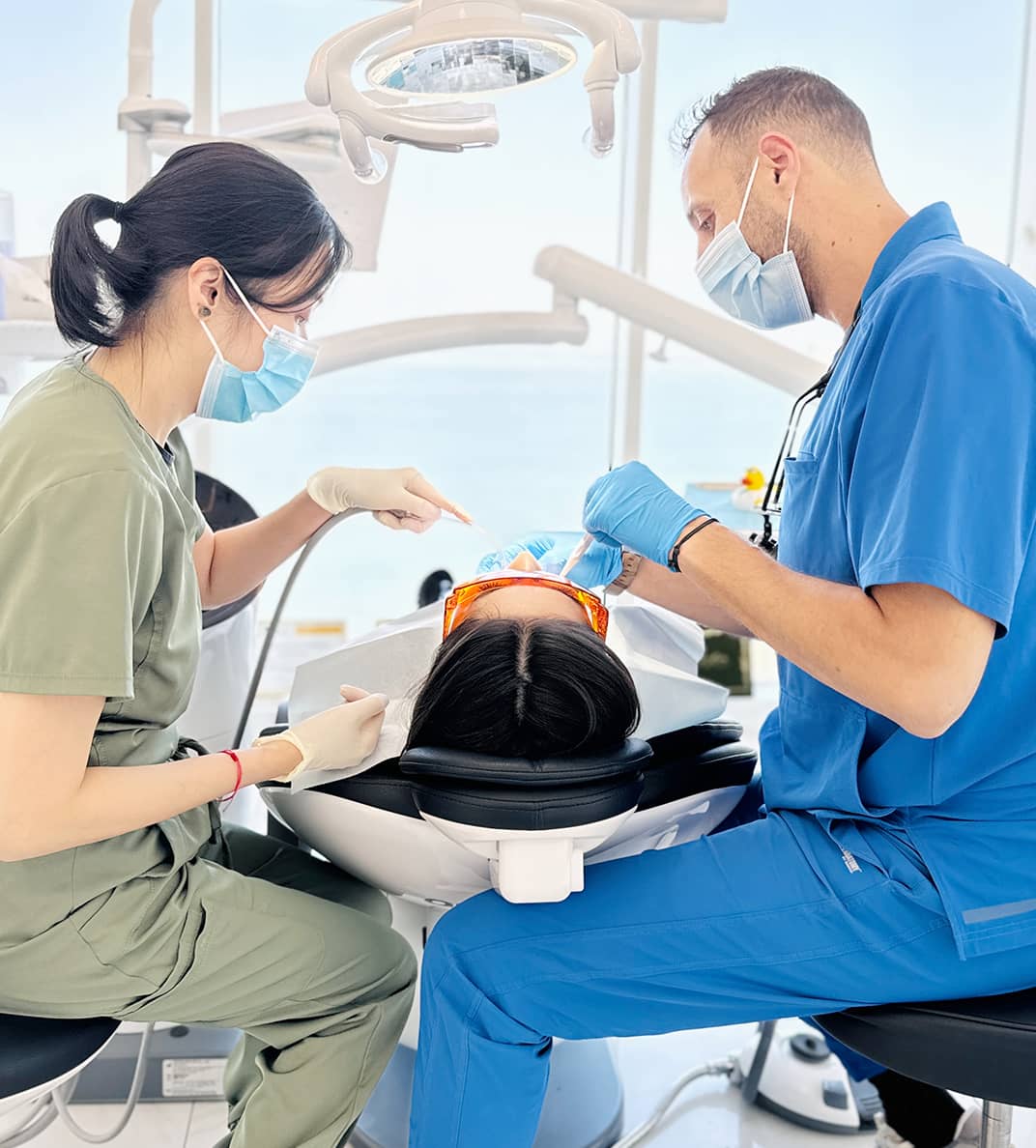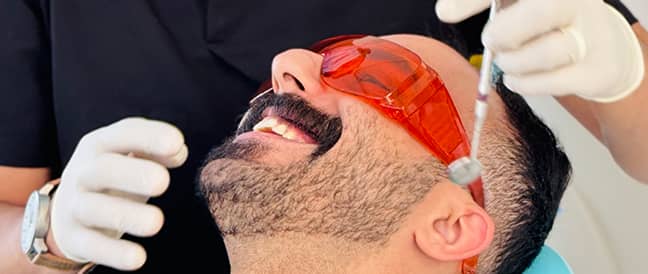General Dentistry

Regular teeth cleanings are important as they keep your smile bright and your breath fresh while also supporting your overall health. If you’re prone to or have a history of periodontal disease, more frequent dental visits, such as every 3-4 months, may be necessary to effectively preserve dental health and prevent the recurrence of the disease.
Flossing helps to eliminate food particles trapped between your teeth that brushing alone may not reach, preventing potential tooth decay and bad breath. It also disrupts the formation of plaque colonies, safeguarding the health of your gums, teeth, and underlying bone.
While a classic toothbrush is effective at maintaining oral health, research shows that electric toothbrushes are better than manual ones in removing plaque, a primary contributor to cavities and gum disease.
Dental plaque is a sticky bacterial film that accumulates on our teeth. The bacteria thrive on sugars from leftover food particles and leads to the production of harmful acids. These acids erode tooth enamel and can cause tooth decay. Plaque buildup also causes cavities.
When plaque remains on the teeth for long periods of time, it can harden into tartar, which causes gum disease.
Brushing your teeth twice a day and flossing daily is the best way to combat plaque accumulation. Regular dental cleanings are also crucial for maintaining oral health and preventing plaque-related issues.
It is advisable to schedule dental check-ups and cleanings at least twice a year, although your dentist might suggest less frequent visits based on your individual health needs. Routine dental examinations and cleanings are essential since they prevent dental issues and preserve the overall health of your teeth and gums.
A dental exam might include:
- Removing calculus (tartar) and plaque
- Teeth polishing
- Inspecting for tooth decay and gum disease
A medical history review
Having bad breath (halitosis) can be unpleasant and uncomfortable. Bad breath is a common occurrence, especially in the mornings. In healthy individuals, microbial buildup on the tongue, particularly at the back, is a primary cause.
To prevent bad breath, it is important to maintain good oral hygiene:
- Brush your teeth at least twice daily using a fluoride toothpaste and a gentle toothbrush.
- Floss daily to eliminate food particles and plaque from between your teeth and beneath the gumline.
- Brush or use a tongue scraper to clean the tongue.
- Replace your toothbrush every 2 to 3 months.
- If you wear dentures or removable bridges, clean them thoroughly and reinsert them in the morning.
- Schedule dental check-ups and cleanings at least twice a year.
- Quit smoking.
- Stay hydrated. Drinking water keeps the mouth moist and flushes away bacteria.
- Use mouthwash or rinses.
In most cases, your dentist can address the root cause of bad breath. If your mouth is healthy but bad breath persists, we may refer you to a physician to identify the underlying cause.
Make sure to brush your teeth twice a day especially before bedtime. Use a soft toothbrush and toothpaste.

